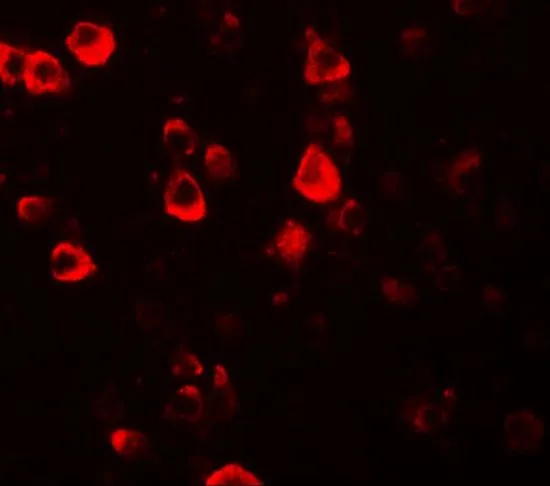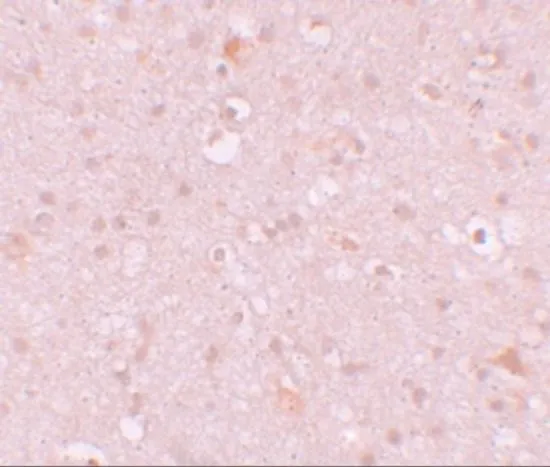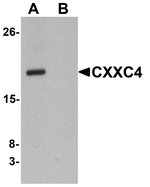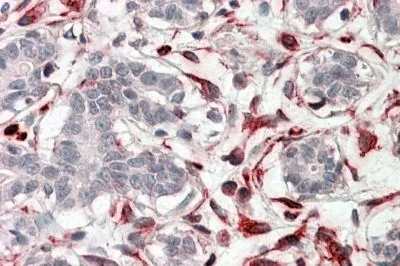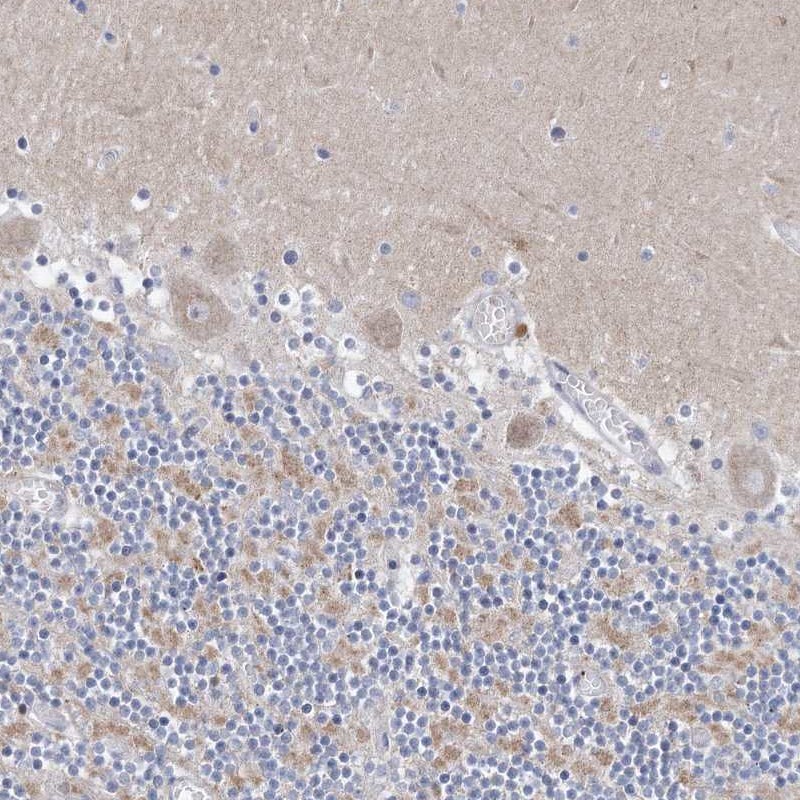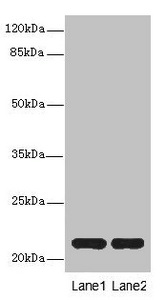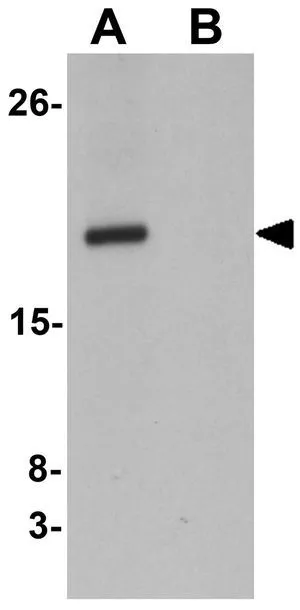
WB analysis of human brain tissue lysate in (A) the absence and (B) the presence of blocking peptide using GTX84996 CXXC4 antibody. Working concentration : 1 μg/ml
CXXC4 antibody
GTX84996
ApplicationsWestern Blot, ELISA, ImmunoHistoChemistry, ImmunoHistoChemistry Paraffin
Product group Antibodies
ReactivityHuman, Mouse, Rat
TargetCXXC4
Overview
- SupplierGeneTex
- Product NameCXXC4 antibody
- Delivery Days Customer9
- Application Supplier NoteWB: 1 microg/mL. IHC-P: 10 microg/mL. *Optimal dilutions/concentrations should be determined by the researcher.Not tested in other applications.
- ApplicationsWestern Blot, ELISA, ImmunoHistoChemistry, ImmunoHistoChemistry Paraffin
- CertificationResearch Use Only
- ClonalityPolyclonal
- Concentration1 mg/ml
- ConjugateUnconjugated
- Gene ID80319
- Target nameCXXC4
- Target descriptionCXXC finger protein 4
- Target synonymsIDAX, CXXC-type zinc finger protein 4, CXXC finger 4, Dvl-binding protein IDAX (inhibition of the Dvl and Axin complex), inhibition of the Dvl and axin complex protein
- HostRabbit
- IsotypeIgG
- Scientific DescriptionCXXC4 is zinc finger protein that binds directly to the PDZ domain of DVL1, a protein involved in the Wnt signaling pathway, through its C-terminal region. CXXC4s interaction with DVL1 competes with DVL1-AXIN binding, although the affinity of DVL1 for CXXC4 is lower than that for AXIN. In mouse fibroblasts, CXXC4 suppressed Wnt3a induction of beta-catenin and inhibited Wnt3a-dependent TCF4 activation, suggesting that CXXC4 acts as a negative regulator of the Wnt signaling pathway and functions between DVL and beta-catenin. Recent reports suggest that decreased CXXC4 expression is associated with kidney cancer metastasis, cell proliferation, reduced apoptosis in response to cancer drugs, and upregulation of genes involved with proliferation, invasion and cell survival, suggesting that CXXC4 plays a critical role in tumor progression in kidney cancer.
- ReactivityHuman, Mouse, Rat
- Storage Instruction-20°C or -80°C,2°C to 8°C
- UNSPSC12352203

